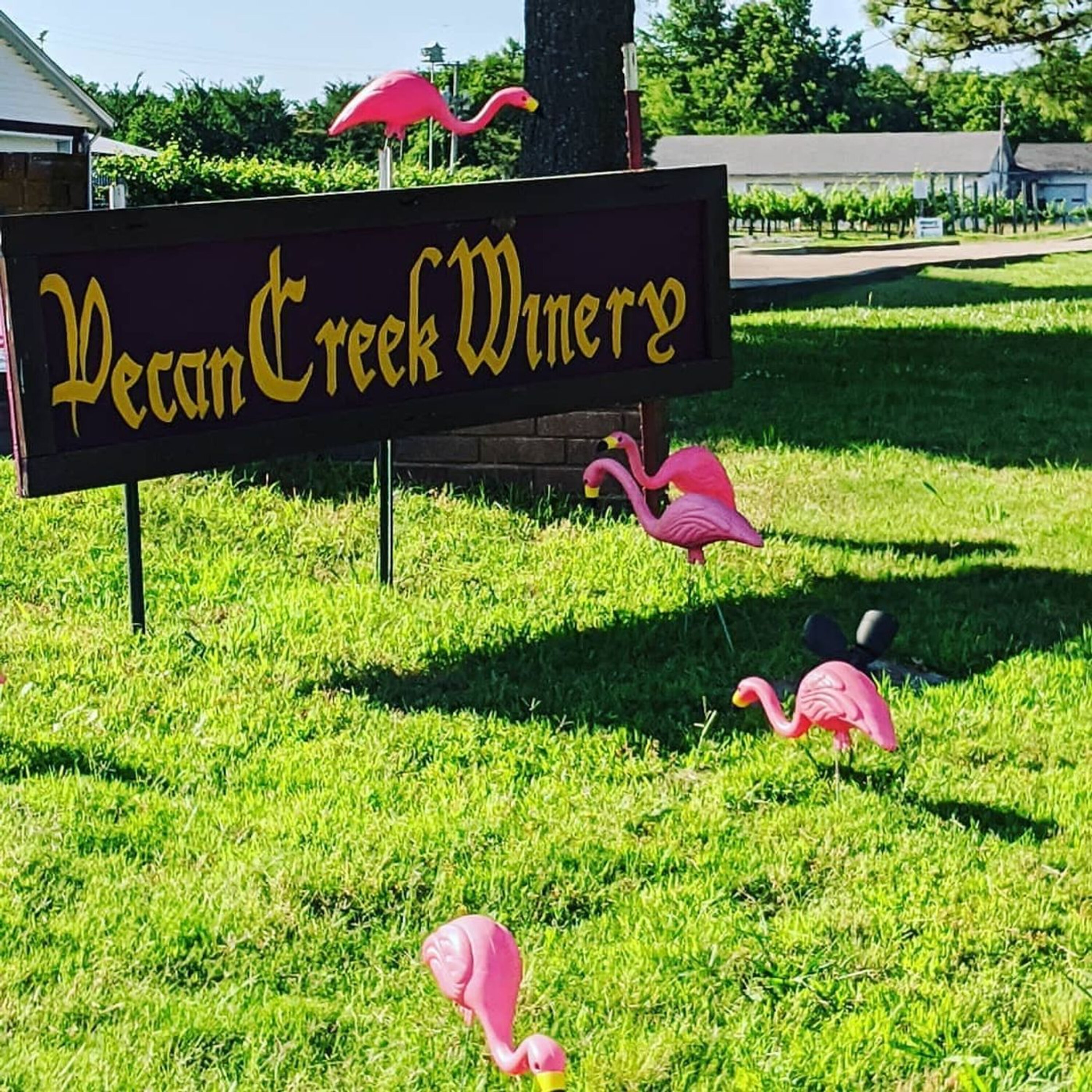Pecan Creek Winery - Muskogee, OK Pt. 1


Welcome to The Best 5 Minute Wine Podcast. I'm your host Forrest Kelly from the seed to the glass. Wine has a past. Our aim at The Best 5 Minute Wine Podcast is to look for adventure at wineries around the globe. After all grape minds think alike, let's start the adventure—our featured winery in this episode. We head to Oklahoma City, where the average commute time is 17 minutes. Not bad considering mine is an hour and a half. The average household size is two. Median family income forty-seven thousand. Yes. Carrie Underwood was born here talking about Muskogee, Oklahoma, also home to: I'm Bob Wickizer. I am the winemaker and co-owner of Pecan Creek Winery in Muskogee, Oklahoma.
Glad to be here. How did you get to this point where you started Pecan Winery? Well, wasn't that the Grateful Dead? Who's saying about what a long, strange trip it's been? My resumé and in brief ranges from being a physicist and medical imaging and starting and selling to companies, software companies, and Silicon Valley to firms. And that's where I learned winemaking and wine appreciation wine pairing; after a number of years and three years of commuting to Asia for a semiconductor project, I went to seminary in Cambridge, Mass. Became an ordained Episcopal priest, was up and down the East Coast in Washington, D.C., at the National Cathedral for a year. And then I got tired of that and wanted to be under the radar. So I've been in Muskogee, Oklahoma, for about ten years. I would get frozen grapes and make wine as kind of a hobby. And a member of the community says, gosh, you got to do something with that. Well, we partnered up, and he's the farmer. I'm the winemaker with that background.
Bob, I imagine that you get pretty adventurous sometimes in winemaking.
I have made a little bit of wine from concentrates just to see what it's like in general. We do not use concentrate except in two parts of the production process. And by the way, those are completely legal in France and California. One is chaptalization, when in fermentation, and we may use the grape concentrate to boost our sugar level up one or two bricks just to get a desired final alcohol concentration. And we may also use grape concentrate in the final sweetening back sweetening of the wine to produce a sweeter wine outside of that. No, there's no concentrate in this process at all.
In the wine business, your job can be varied. Is there such a thing as a typical day for you?
I wouldn't know. Typical if it hit me between the eyes. But a lot of times, I'm still the rector of an Episcopal church. Now we have virtual services and all that stuff besides writing and producing services. Every week I have three or four other articles I write online. And we're the only Episcopal Church in Muskogee. But I'm right church stuff for three or four hours, between four-thirty each, starting about four, 30, or five in the morning. And then myself, crew, I'll get something to eat some coffee myself. Our crew gets in about 9:00 every Monday. They have one or two pages of a detailed list of what to do. And I go over every day for about 45 minutes or just to clarify and answer questions and occasionally do calculations.
I get an aside, being a physicist, I'm astonished at the lack of math skills in the general population.
So I'm doing all the dosing calculations and transfer calculations and filtering determination's stuff like that. So any problems need to get resolved. I may do them in the morning, or I'll go back to church or stay home, one of those three, and then the winemaking duties.
Besides that, it also amounts to managing sales, managing finance, purchasing department. I thought the other day; I counted up 17 hats I wear.
So it's a good thing, too, because I don't have any hair all its time—boys and Girls for our listener voicemail.
Hi, this is Alex from Muskogee, Oklahoma. I'm interested in knowing how different great and different grow based on different climates and different altitudes across the United States and how that affects the different quality of wine produced. Thank you.
As the saying goes, some wines have an attitude. Some wines have altitude. But it's a good question. The Napa Valley in California maxes out at about 3000 feet. You head over to Europe, and you've got 4000 feet. And then Argentina checks in at the highest with almost ten thousand feet. You could make a case that the higher the altitude, the better the wine. However, you could also make a case that it doesn't matter. You could say what matters is the process. Thank you for listening. I'm Forrest Kelly. This episode of the Best 5 Minute Wine podcast was produced by IHSYM. If you like the show, tell your friends and pets and subscribe. Until next time, pour the wine and ponder your next adventure.
This podcast uses the following third-party services for analysis:
Chartable - https://chartable.com/privacy
Podcorn - https://podcorn.com/privacy
Support The Best 5 Minute Wine Podcast: https://www.patreon.com/thebestwinepodcast
See omnystudio.com/listener for privacy information.
